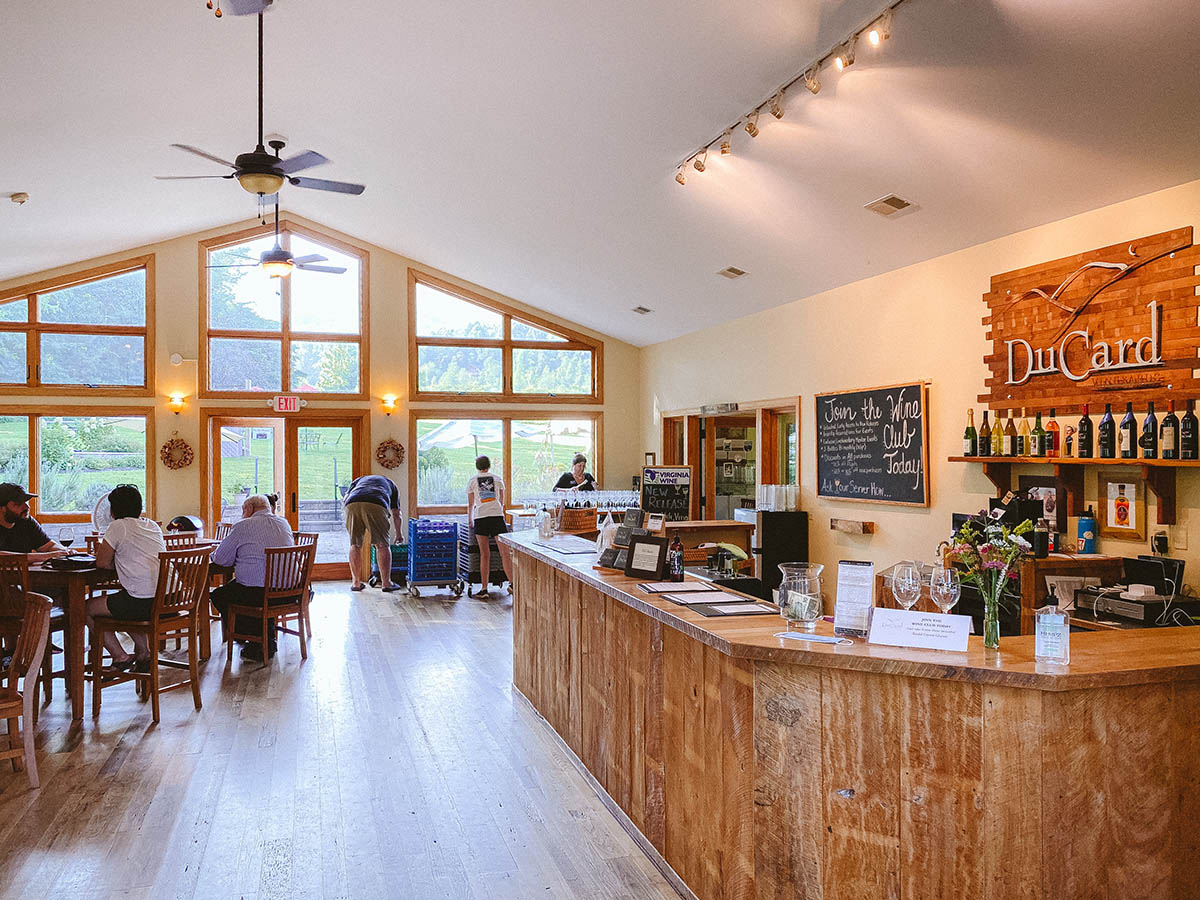“Is this the most environmentally friendly option?” At DuCard Vineyards, this is the question asked prior to making each and every decision. Nestled at the edge of the Shenandoah National Park among the mountains of Madison County, DuCard’s vintners are not only committed to producing award-winning, small-batch wine but also devoted to being good stewards of the earth. “We benefit greatly from our environment, and we want to keep it as healthy as possible,” says Beth Wilson, DuCard’s Customer Experience and Marketing Director. Their latest concentration: eliminating plastics from their tasting room.
Partnering with Virginia Artesian Bottling Company, DuCard offers 12-ounce glass bottles of water that are recyclable and refillable, thus eliminating a need for single-use plastic water bottles. Roughly 480 billion plastic bottles were used globally last year, and of those, less than 10 percent were recycled. With this initiative, Wilson estimates that DuCard is preventing the use of nearly 10,000 plastic bottles per year. “While we certainly know we’re not making a measurable dent in the problem, our philosophy is that everyone can do something, contribute to the solution, and be a good role model,” says DuCard’s founder and president Scott Elliff.
Not only does DuCard consider the environmental impact of the products and supplies in use, but also the carbon footprint in terms of sourcing and shipping. DuCard locally sources whenever possible, and that includes the water in the bottles. “Our water is sourced from a number of springs at our central Virginia property,” says Nick Brown, president of Virginia Artesian Bottling. “Our carbon footprint is lower than most other water options, which are trucked in from up to a thousand miles away to Virginia-based businesses.”
Prior to the transition to water in glass bottles, DuCard’s tasting room eradicated plastic tableware, opting for biodegradable and compostable items instead. Local sources provide the cheeses, meats, and chocolates for wine pairing, and the items are stored in reusable glass containers. The wine bottles are 20 percent lighter than average, and corks get recycled and turned into flooring.
Beyond the tasting room is an expansive array of practices ensuring sustainable operations. In the vineyard, DuCard uses mainly organic materials and natural methods for vine management and protection. It composts grape waste by-products for use in its fields and gardens. For the winery, solar panels generate power for heating, cooling, lighting, processing, and production. An on-premises artificial wetland system uses plants to filter winery wastewater. In all facets of the enterprise, DuCard focuses on employing and retaining mostly local workforce. It has even joined with Piedmont Virginia Community College to help train local people in vineyard operations and management for its viticulture and enology program.
DuCard is the first winery in Virginia to implement the glass bottle initiative, but this is not the first time it has led the way in sustainability efforts. Since opening its doors in 2010, DuCard has been something of a trailblazer, as evidenced by its repeat recognition as the Greenest Winery in Virginia (2010, 2015). The hope is for others to implement similar practices. “Especially for wineries and agricultural businesses in general, we thrive and are successful because of what the land and the environment give us,” says Wilson. “It’s our turn to take good care of it.”
While these efforts often take a great deal of time and work to plan and implement, and rarely present much of, if any, cost savings, DuCard has no plans to slow down. “There are lots of reasons why it’s not the easiest way to go, but it’s the best way,” says Wilson. “We’re not just committed—we’re happy to do it.”
